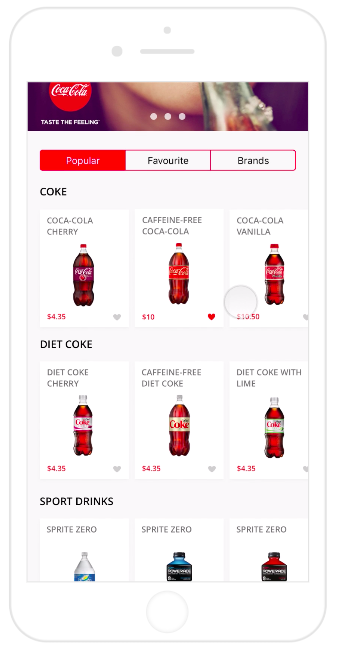Who is a QA engineer?
Simple:
It’s a person who ensures that software is exactly what clients need. In technical terms, this means an error-free, stable, and secure product.
To do their job properly, QA engineers (also called QA testers) are involved in every step of the software development process. You can see them at design meetings, daily check-ins, and client calls, often asking a bunch of questions.
All questions from QA testers are justified, as they have the best interests of both clients and software users in mind. By doing their job, they save a lot of time and money for businesses. That’s why knowing about QA is a good idea for every business that has software.
In this post, you’ll learn:
Not here to read about QA? Then check these articles:
- 20+ Killer App Ideas for Startups
- 20 Best Website Designs For Your Inspiration
- How Much Does It Cost to Develop a Custom Application?
Ensure the finest quality of code. Work with a software development companywith a 4.9 rating on Clutch.
What is a QA Engineer?
A QA engineer focuses on ensuring the safety, functionality, and stability of software. They plan and run tests at different stages of the software development process to find potential problems such as bugs before the release.
After running tests, QA engineers share their findings with software developers and work with them to resolve any discovered issues. This collaboration is essential to ensure that software meets all the needs and requirements of clients.
QA Engineer Roles and Responsibilities
QA engineers are responsible for everything related to the software testing process. Although the range of QA responsibilities depends on team size and client needs, QA folks do these tasks in most software companies.
QA test planning
This is one of the primary responsibilities of QA engineers. They design software tests and procedures to be able to find bugs, errors, and other potential problems. Each test must reflect a typical user session inside the software, e.g. registration.
Types of QA tests in software development:
- Unit testing. Ensures that individual software pieces work on their own
- Security testing. Aims to find security-related vulnerabilities and issues
- Functional testing. Focuses on verifying outputs of actions in the software
- Regression testing. Determines if software code changes affect performance
- Acceptance testing. Ensures that users can achieve the main goals of the software
- Performance testing. Evaluates software performance, reliability, speed, and stability during different workloads
Want to learn more about types of QA tests? This guide on Types of Software Testing has more detailed explanations in simple language.
Running QA tests
QA engineers use test management software to run software checks. Depending on the project, they can perform tests manually and automatically. In both cases, QA engineers use various bug tracking and test management tools.
It’s pretty common for QA teams to automate the testing of software code now. Besides time savings, some processes are just not worth the precious manual effort. Yet still, the division between manual and automated testing depends on the project.
Want to know what testing tools are used to do checks of mobile apps? These 10 Mobile App Testing Tools for iOS and Android are the most popular among QA folks.
Test result analysis
The QA team compiles test results in one or multiple reports to share with developers and other stakeholders. A test is a summary of goals, activities and results. The frequency of test reporting depends on the project and is decided at the planning stage.
Product compliance check
This type of testing ensures that the software product is compliant with applicable laws and regulations. It’s a necessary part of software development that helps businesses avoid fines. QA engineers conduct checks and make a report containing missed procedures or violations.
The most common software laws and regulations considered here include:
- The Payment Card Industry (PCI)
- The Health Insurance Portability and Accountability Act (HIPAA)
- General Data Protection Regulation (GDPR) (applies only for EU-based users)
- ISO/IEC/IEEE 12207:2017 Systems and software engineering
- Standards of The World Wide Web Consortium (W3C)
Risk assessment
In software testing, risk means the occurrence of an unforeseen event or problem that can undermine the success of the future software product. QA testers play a vital role in preventing these risks.
Risk-related responsibilities of QA testers include:
- Prioritize testing of certain features when a project grows
- Identify, classify, and evaluate risks before and during the project
- Propose ideas and solutions to risk prevention based on test results
- Facilitate discussion and collaboration with developers and other stakeholders about potential risks.
Collaboration with developers
To succeed in their role, QA testers must work closely with developers. It is their duty to communicate test findings and recommend ways to correct errors and bugs. That’s why QA engineers are team players with great communication skills.
QA Testing Process at IDAP Group
How does IDAP ensure the highest software quality?
For example, in this mobile app for a maritime startup or this financial mobile app project (both rated 5 stars by clients)?
It’s simple:
We run QA checks at different stages of the software development process rather than after most development has been completed.
This strategy allows to:
- Find any potential issues faster
- Reduce development costs by detecting issues early
- Simplify the development process by preventing extra work
- Create a high-quality product by eliminating issues like bugs and errors
Running checks during software development means that the team of QA engineers works together with developers. Once the developers are done coding and checking on their part, they share the code with QA testers who take it from there.
Here’s how this process looks like.

So, QA engineers are an indispensable part of software development teams here at IDAP. They have all the autonomy and tools needed to ensure the highest code quality.
Here’s what you can expect from our QA team as a client:
- Learning about your software idea and target customers
- Creation of effective QA tests in cooperation with you
- Regular reports and video meetings to keep you on top of things
By using QA reports and feedback, you’ll be able to make better decisions about your product and ultimately achieve your goals.
By the way, here’s a couple of projects we’re proud of.

eColaA B2B mobile app that allows distributors to order Coca Cola products directly from the manufacturer. Role of our QA team:Security testing, regression testing, and other tests to ensure high stability and performance of the product.Full info: eCola App Development
Choose IDAP for Software Testing Outsourcing
QA engineers are an indispensable part of any software development team. They help businesses build high-quality software products without having to spend more money fixing bugs and errors.
If your project:
- Lacks QA skills
- Requires cost savings
- Needs more QA testers
… then feel free to contact us. Our team of experienced QA engineers will be glad to help you with any kind of software testing.
Need to read more about outsourcing first?
These guides should be helpful:



